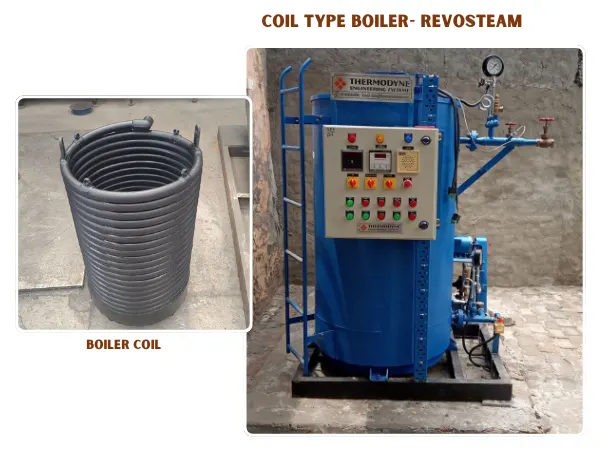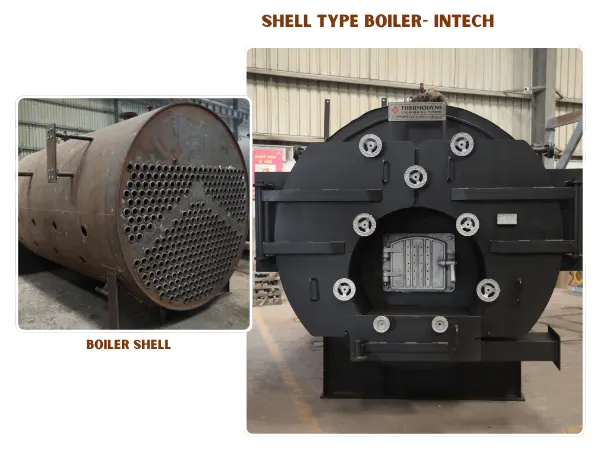In today’s industrial landscape, steam generation is a crucial component across sectors like food processing, pharmaceuticals, textiles, plywood, chemicals, and more. Choosing the right type of boiler, whether it’s a coil type boiler or a shell type boiler, is not just about meeting steam demands—it directly affects fuel efficiency, operational cost, space requirements, and regulatory compliance.
Among the various boiler technologies, Coil Type Boilers and Shell Type Boilers are two popular options. Both come with their own advantages and ideal use cases. This blog will help you compare both types and guide you in choosing the best fit for your industry.
Understanding the Basics
What is a Coil Type Boiler?

A Coil Type Boiler, often known as a once-through boiler, uses a coil-shaped heat exchanger where water flows through the coil and gets converted into steam. These boilers are known for their compact size, quick steam generation, and non-IBR compliance (in certain models).
Key Features:
- Compact design with vertical or horizontal orientation.
- Low water holding capacity.
- Rapid steam generation (within 4–5 minutes).
- Generally non-IBR (up to 25 bar).
- Suitable for intermittent steam loads.
What is a Shell Type Boiler?

A Shell Type Boiler (also called Smoke Tube Boiler) consists of a large cylindrical shell filled with water. Hot flue gases pass through tubes submerged in water, converting it into steam over time. These are often IBR compliant and suitable for continuous steam requirements.
Key Features:
- Larger water holding capacity.
- Slower steam generation compared to coil boilers.
- Robust design for steady operation.
- High pressure and capacity capabilities.
- Preferred for constant load operations.
Coil Type vs Shell Type: Feature-wise Comparison
| Parameter | Coil Type Boiler | Shell Type Boiler |
| Startup Time | 4–5 minutes (very fast) | 20–30 minutes (slower) |
| Steam Generation Speed | Very quick | Steady and slower |
| Fuel Efficiency | High for fluctuating loads | High for continuous loads |
| Water Holding Capacity | Low | High |
| Footprint | Compact, vertical or horizontal | Larger, requires more space |
| IBR Certification | Usually non-IBR | Typically IBR compliant |
| Initial Investment | Lower | Moderate to High |
| Maintenance | Easier and less costly | Requires skilled maintenance |
| Ideal Load Type | Intermittent / Variable | Constant / Continuous |
Industry-wise Suitability
When to Choose Coil Type Boilers
Coil Type Boilers are perfect for:
- Food Processing Units: Where steam is needed instantly and intermittently
- Pharmaceutical Industry: For quick batch processing with hygiene-focused operations
- Hotels & Hospitality: For laundry, kitchen, and sterilization systems
- Small Chemical Plants: Where compact size and mobility are required
- Start-ups & SMEs: Where budget and space are major constraints
Thermodyne’s Revosteam, a coil type boiler, is widely adopted in small to mid-scale industries for its quick steam delivery and high fuel efficiency.
When to Choose Shell Type Boilers
Shell Type Boilers are ideal for:
- Plywood and Timber Industries: Which require long and steady steam supply.
- Textile Units: Where steam demand is high and consistent.
- Large Chemical and Petrochemical Plants: With complex heating needs.
- Rice Mill: Steam for parboiling and drying.
- Dairy Industry: Reliable steam for pasteurization and CIP.
- Corrugation Industry: Constant steam for lamination and drying.
- Construction Industry: Steam for curing concrete and blocks.
- Any operation running in 2–3 shifts continuously.
Thermodyne’s Intech, a shell type boiler, is widely adopted in solid fuel-based industries for its high steam output, fuel flexibility, and compact design..
Performance & Efficiency Comparison
- Fuel Savings: Coil type boilers can save up to 20–25% fuel during batch production compared to conventional shell boilers.
- Thermal Efficiency: Coil boilers can achieve up to 88–92% thermal efficiency when paired with economizers or air preheaters.
- Downtime: Coil boilers minimize downtime due to their quick startup and easy maintenance.
Maintenance & Lifecycle
- Coil Type Boilers: Require periodic descaling and coil inspection but are easy to clean and maintain due to openable covers and compact parts.
- Shell Type Boilers: Have longer life cycles but require regular blowdown, tube cleaning, and licensed operators for maintenance as per IBR guidelines.
Final Thoughts: Which One Should You Choose?
The decision depends on your:
- Steam demand pattern (intermittent vs continuous).
- Available floor space.
- Compliance requirements (IBR vs non-IBR).
- Budget constraints.
- Scalability and automation needs.
| Choose Coil Type If | Choose Shell Type If |
| You need fast steam generation | You need large and steady steam output |
| You have space constraints | You have space and can invest in larger equipment |
| You prefer non-IBR units for easier operation | You comply with IBR and have continuous processes |
| Budget and maintenance are your priorities | High capacity, durability, and steady supply matter |
Thermodyne Engineering Systems: Your Trusted Boiler Partner
At Thermodyne Engineering Systems, we provide both Coil Type (Revosteam) and Shell Type (Intech) steam boilers designed with custom engineering, fuel flexibility, and energy-saving features.
Whether you’re running a small-scale unit or a large industrial plant, our team of experts will help you choose the right boiler system based on your operational needs.
💬 Need help deciding the best boiler for your industry?
Connect with our team today for a free consultation or product demo.
📞 +91-9990226006
FAQs
A coil type boiler is a non-IBR water tube boiler where water passes through coils heated by combustion gases. It’s known for fast steam generation, compact design, and low water holding capacity.
A shell type boiler is a fire tube boiler with hot gases passing through tubes submerged in water. It provides steady steam output over long durations and is ideal for large-scale industries with high steam demand.
Coil type boilers are compact, fast, and non-IBR, while shell type boilers are larger, with higher water holding capacity and suitable for continuous, high-pressure operations. The choice depends on steam demand and available space.
Coil type boilers are ideal for limited spaces due to their compact, vertical design.
Most coil type boilers are non-IBR, but custom versions can be made IBR-compliant if needed.
Industries like food processing, pharma, dairy, rice mills, and chemicals benefit from coil type boilers due to quick start-up, low operating costs, and easy maintenance.
Coil type boilers are more fuel-efficient for intermittent or low-to-medium loads, while shell type boilers are efficient for high-load, continuous operations.
Shell type boilers are ideal for industries like textiles, plywood, rice mills, chemical plants, dairy, and large-scale manufacturing that require consistent and high steam output.
Coil type boilers have a quick startup time of 4-5 minutes, while shell type boilers take around 20-30 minutes to start up.
Consider steam load, space, fuel type, startup time, maintenance, and IBR compliance to make the best choice.






